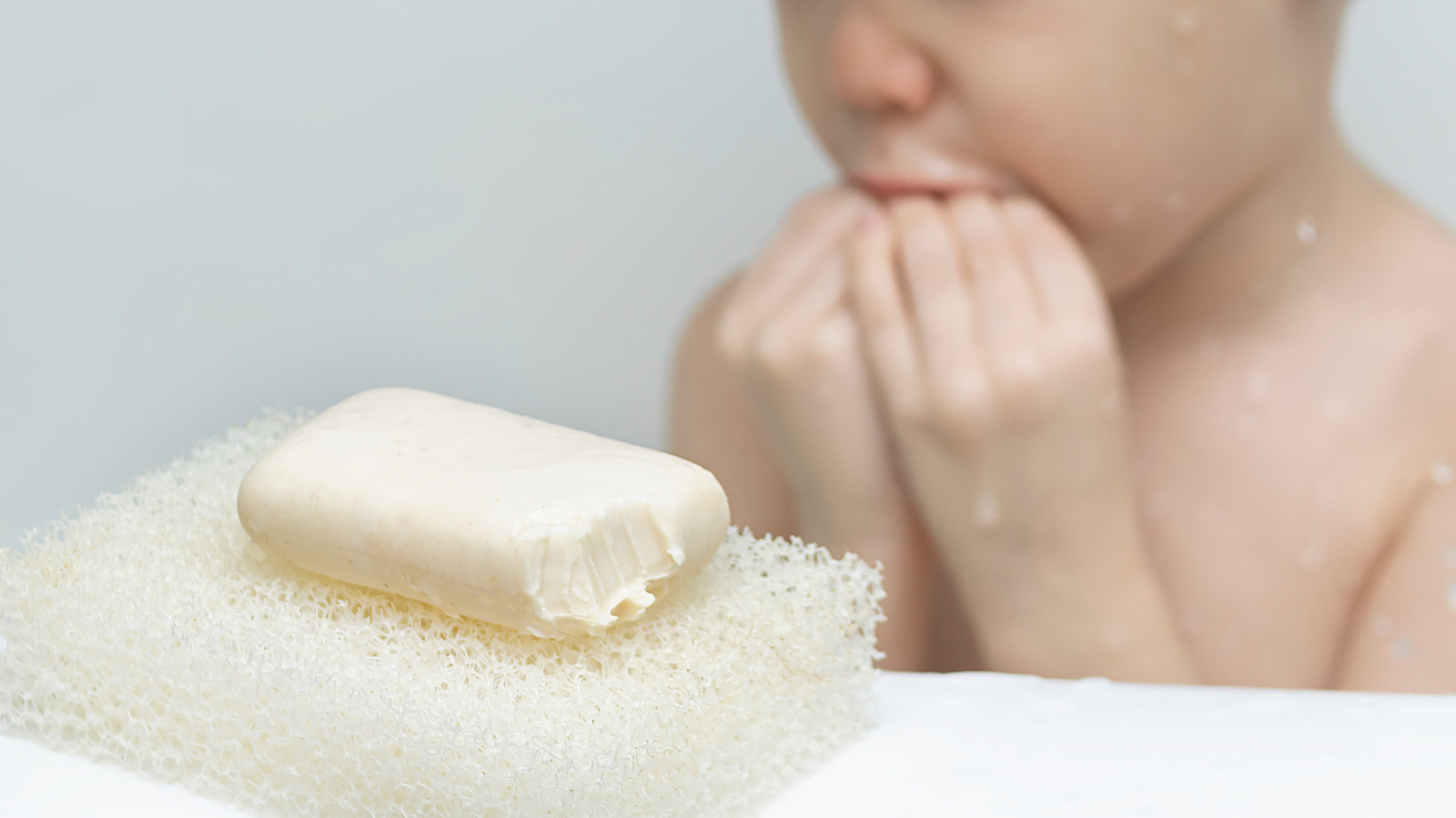Sharing is caring!
There is always a phenomenon to describe a particular situation or circumstance.
Pica is a mental health disorder that triggers a feeling or desire to eat substances without nutritional value.
Pica patients might want to devour soap, sand, clay, or paints.
Sapophagia is another classification of Pica, meaning the desire to eat soap.
It is not an uncommon feeling, and you’re not the only one who has ever thought of checking what a bar of soap tastes like.
Some soaps just smell so great that having the urge to taste them is irresistible.
If you have a weird fascination with soap, it’s only sensible to understand if soap is edible and the consequences of eating it.
Is soap edible? Should you eat soap? Should you not? Continue reading to get answers to these questions.
Is Soap Edible?
The answer to this question depends on the type of soap in question. Generally, Soaps are not edible.
Several other varieties are non-toxic even when they are not meant to be edible.
However, consuming any soap products not meant for cleaning the body is poisonous. If you consume any, you need to get an immediate medical diagnosis.
Eating soap poses many harmful side effects.
Taking a bite or two can lead to vomiting or indigestion, among many other risks.
You might escape permanent damage when you consume a small amount of soap, but it majorly depends on the type of soap.
Over time, when you repeatedly consume soap, it can cause health complications.
What Are The Side Effects Of Eating Soap?
Perhaps the explanation above is not sufficient, and you’re not yet convinced about eating soap or not. Continue reading as we establish health complications eating soap can cause.
Side effects of eating soap include vomiting, diarrhea, nausea, and indigestion.
In a report from a survey, most soaps contain high alkaline PH, which can upset the stomach and harm the digestive tract lining when consumed.
Furthermore, lauric acid, fragrances, and essential oils from plants are common ingredients in soaps.
Even though these ingredients are natural, they are not food-grade.
Therefore, when you eat soap, you’re at high risk of having discomfort such as vomiting, indigestion, and stooling.
Lest we forget, some soaps contain harmful or harsh ingredients.
You don’t even want to think about the aftermath of consuming such products. In the worst cases, it can lead to death.
Other side effects of eating soap include:
- Inflammation
- Swelling in throat, tongue, and lungs
- Breathing difficulty
- Damage to liver
- Cancer
- Death
So please, don’t eat soap.
What Happens If A Child Eats Soap?
The child is also at the risk of having the above health complications, except that in a child, the symptoms could be more dangerous.
It’s a serious situation that needs urgent attention.
Ensure you cleanse the soap off the child’s mouth, apply necessary first aid care and seek the doctor’s help immediately for further diagnosis.
What Are The Long-Term Effects Of Eating Soap?
Taking large amounts of soap over time can result in serious health complications.
Some possible long-term effects include the blockage or damage of the digestive tract and liver, risk of cancer, and death.
Sharing is caring!

